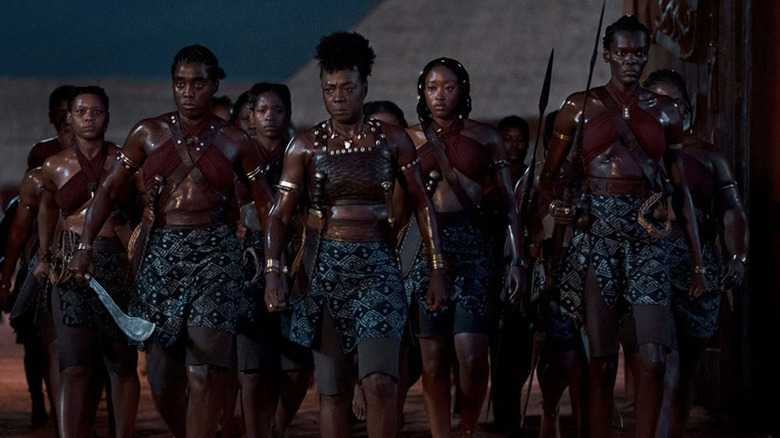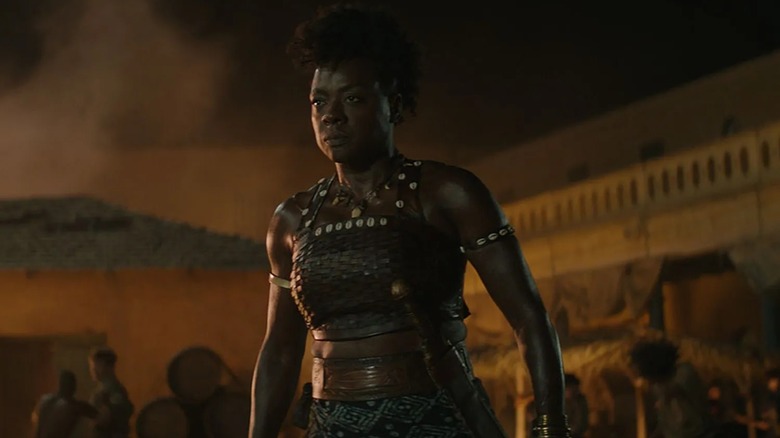Gina Prince-Bythewood Wanted To Show That 'Real Women' Can Be Warriors In The Woman King
Tonight marks the theatrical debut of screenwriter Dana Stevens and director Gina Prince-Bythewood's "The Woman King," the Viola Davis-starring historical action-adventure epic about the Agojie, the all-female group of warriors loyal to the new King Ghezo (John Boyega). Set in 1832, Davis plays Nanisca, a General in the West African Kingdom of Dahomey.
Hollywood has a deeply problematic history with its lack of (or disrespectful) representation of Black performers, especially Black women. A film like "The Woman King," with an almost exclusively Black cast, shouldn't be history-making by now, but it is, and holy hell is it glorious.
Lashana Lynch who plays Izogie in the film has already called it "the new blueprint for film," hoping that the success of "The Woman King" will embolden others to take risks and tell stories outside of the status quo. Prince-Bythewood said it best when she stated, "In this story, we have the ability to reshape what it means to be female," a reference to the way that women have historically been viewed as smaller, weaker, and without the ability to defend themselves.
In a new interview with A.Frame, Prince-Bythewood expanded on her statement by saying, "Even in this day and age, people do not think of women as warriors, as fighters, as having heart and courage." If you don't know anything about the Agojie, know that they inspired the Wakandan female warriors of "Black Panther," who were so well received that they helped "The Woman King" get made.
'They wanted to be fighters'
Prince-Bythewood noted that the Agojie women had all of the qualities that so many people believe women are incapable of possessing, and it's a well-documented fact. "They were the main fighting force of this kingdom, and they wanted to be there," she said. "They wanted to be fighters." These weren't women bitten by radioactive spiders or forced into training as children to be legal assassins, they were warriors who wanted to be warriors. "There was a beauty in their power, in how they trained, and they were praised for it," she continued.
Unfortunately, these sentiments have not extended to our current era. "You still see how people come down on Serena [Williams], who is absolutely the greatest of all time — what she's had to go through as an athlete and female athlete," she said. "The more we can put women up on-screen to show that we have an innate warrior, to celebrate their fitness, and their athleticism, and their skill, to show that we are capable." To enforce Prince-Bythewood's point even further, she also highlighted that the actors in "The Woman King" are performing their own action scenes.
"These are not stunt doubles doing that fighting. These actors, these women? Did that. Viola Davis did that. Thuso Mbedu did that. We can do that. These are not superheroes. These were real women, and the women up on-screen are real women."
"The Woman King" is now playing in theaters everywhere.

